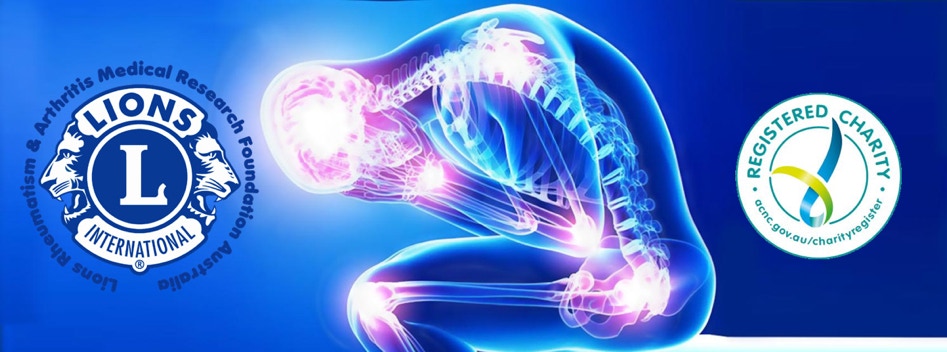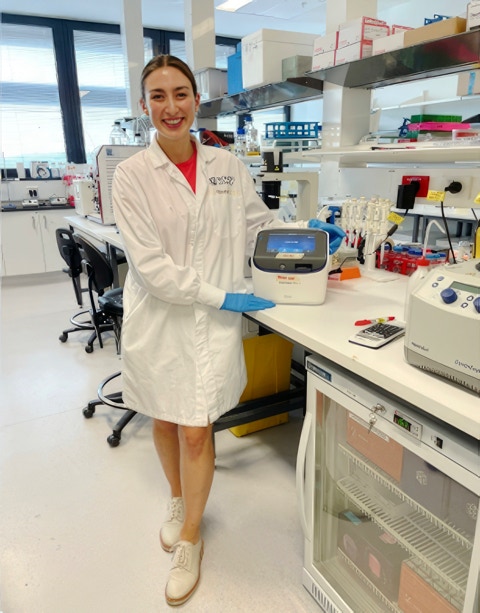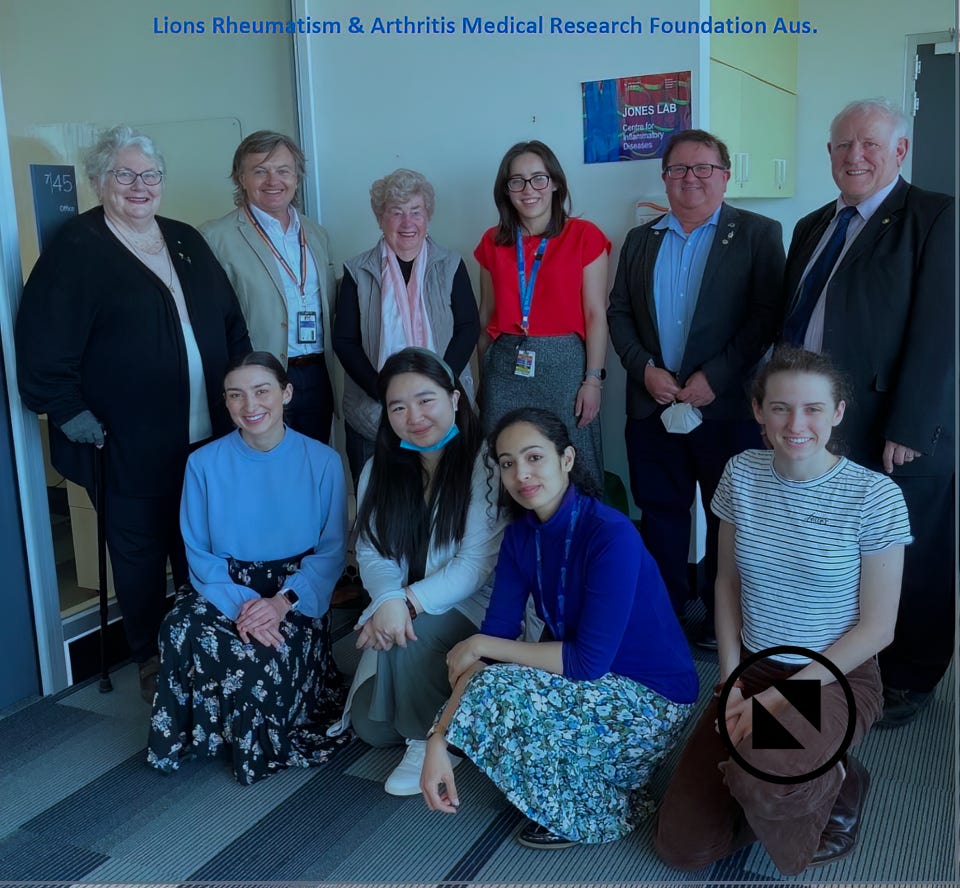Lions Rheumatism and Arthritis Medical Research Foundation Australia
HOME

A Project of the Lions Clubs in Victoria, Australia
A National Project from the 1st July 2019
HISTORY
The Foundation was formed by the Lions Club of Elwood and was a project of District 201V1.
The first trustees in 1980 were Lion Ian Collis (Elwood), Past District Governor Neil Armstrong, Lions Henry Bell, David Hatfield, Piloo Rustromjee, and Roger Newton. Elwood had two trustees up until about 2000.
Lion Terry Collison joined the Trustees in the early 90s, was Vice Chairman and took over from Neil as Chairman in the middle 90s until 2000.
Main fundraising in the beginning was donations from Clubs in District 201V1. From 1994 to 1997, the Foundation was the main beneficiary for the "Gown of the Year” (run by the fashion industry).
The Foundation funded research at the Monash Medical Centre from the beginning and was funding at $10,000 per year ($2500 each quarter) from interest earned. Current donations are about $5000 per half year.
Various name changes have occurred during recent years with the current name being adopted at conventions in Victoria in 2018
Click here for some more history Open PDF Document
The Lions Rheumatism and Arthritis Medical Research Foundation Australia was established by the Lions Clubs of Elwood to support the development of Rheumatism and Arthritis Research for the benefit of the population within the five Lions Club Districts encompassing Victoria and Southern New South Wales.
MONASH MEDICAL CENTRE
CLINICAL ACTIVITY
Professor Eric Morand is a specialist rheumatologist, and Head of the Southern Health/Monash Medical Centre Rheumatology Unit.
He specalises in the clinical care of complex rheumatic diseases, rheumatoid arthriits, and systemic lupus erythematosus.
He is founder of the Monash Lupus Clinic, Australia's largest Lupus-focussed research-grounded clinic for patients with SLE.
What is rheumatoid arthritis? Rheumatoid arthritis (RA) is an autoimmune disease, in many ways similar to lupus, that causes pain and swelling of the joints. The normal role of your body's immune system is to fight off infections to keep you healthy. In an autoimmune disease, your immune system starts attacking your own healthy tissues. In RA, the immune system targets the lining of the joints, causing inflammation and joint damage. RA usually affects smaller joints, such as the joints in the hands and feet. However larger joints such as the hips and knees can also be affected.
Who's at risk? Despite widely held views, developing rheumatoid arthritis is not a normal part of ageing. It's a condition seen in people of all ages, including children and young people, and people from all backgrounds and lifestyles. The causes of RA are unknown, however it is more common in people who smoke or those with a family history of rheumatoid arthritis.
Rheumatoid arthritis symptoms The symptoms of RA vary from person to person. The most common symptoms are:
• joint pain, swelling, and tenderness to touch
• stiffness in the joints, especially in the morning
• symmetrical (the same joints on both sides of the body are affected).
Many people with RA experience ‘flares', periods when joints become more inflamed and painful. These can happen with no obvious cause. ‘Flares' are commonly followed by months or even years when there is little inflammation. RA can cause permanent joint damage and deformity, especially in the first few years of the disease. The good news is that early diagnosis and treatment is shown to limit this type of joint damage.
A need for improved treatment There is no cure for arthritis, however treatments have improved dramatically in the past 20 years. Your rheumatologist will tailor your treatment based on your
symptoms and the severity of your condition. There is no way of predicting exactly which treatment will work best for you, so your doctor may need to trial several different treatments before finding the one that is right for you. Medication, exercise and leading a healthy life, and pain management are all things your specialist may prescribe.
Arthritis research at Monash
Lupus and Arthritis Research Group Monash is leading the way in the research and treatment of arthritis in Australia. Our researchers are clinician-scientists with backgrounds in rheumatology, kidney disease, immunology, and clinical trials.
Uncovering and developing new arthritis treatments and conducting clinical trials is a key focus of our arthritis research.
Find out more about our research.
Monash Health Rheumatoid Arthritis Clinic. The Rheumatoid Arthritis Clinic at Monash Health is located at Monash Medical Centre in Clayton. The clinic, led by Professor Michelle Leach, provides services in the treatment of chronic pain syndrome, joint problems, multi-system/connective tissue disease, muscle aches and pain, osteoporosis/metabolic bone disease, periartricular/soft tissue, rheumatism, rheumatological disorders and rehabilitation.
Photo of Layla Bennett, a Postdoctoral Research Fellow with new donated equipment from Lions District 201N1
Find out more and make a booking with the Monash Health Rheumatology Clinic today.
Paediatric Rheumatology Clinic. We also have a specialist paediatric rheumatology clinic for children and adolescents with arthritis, auto immune connective tissue diseases or benign musculoskeletal conditions. Find out more about Paediatric Rheumatology
The primary role of the Foundation is to create a Capital Fund to support research programmes through liaison with Lions Clubs, Charitable Trusts and Corporations.
Web Page Visits
The latest donation from Lions Clubs of $78000.00 plus funds from Monash was made to purchase a Tecan Microplate Reader.

